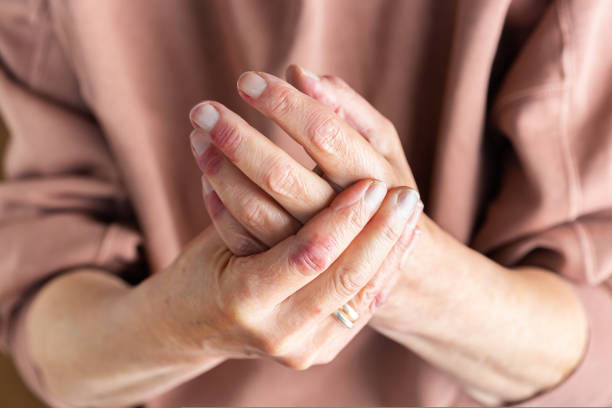Understanding Eczema: A Comprehensive Guide
- Johana Jaimez
- Jan 22
- 3 min read
Eczema, or dermatitis, is a common skin condition affecting millions worldwide. Characterized by inflammation, it's essential to understand the nature of eczema, its various forms, symptoms, causes, and effective treatment options.

What is Eczema?
Eczema is a type of dermatitis, meaning it involves the inflammation of the skin. The condition typically begins with symptoms such as itching and redness, which may progress to tiny bumps or blisters. In some cases, eczema can develop into a chronic condition, marked by:
- Thickening of the skin
- Scaling and flaking
- Dryness
- Color changes
Types of Eczema There are several types of eczema, each with distinct causes and patterns:
1. Atopic Eczema (Atopic Dermatitis): This is the most prevalent type. It often begins in childhood and may be linked to a family history of allergies. Symptoms can include irritated, red, crusted patches, especially on the face, neck, and in the creases of the elbows and knees.
2. Contact Dermatitis: Triggered by irritants or allergens, this eczema manifests after direct contact with harmful substances. Symptoms range from mild redness to severe blistering.
3. Hand Eczema: A localized type affecting the hands, it can be associated with atopic eczema or result from frequent hand washing and exposure to strong detergents.
4. Nummular Eczema: Presents as round, coin-sized patches of irritated skin. It's more common in adults and often appears on the legs and arms.
5. Asteatotic Eczema: Typically affecting the elderly during winter, it appears as very dry skin with fine cracks, often found on the lower legs.
6. Stasis Dermatitis: Associated with poor circulation, this type presents on the legs and is characterized by swelling, redness, and itching.
7. Lichen Simplex Chronicus: Chronic rubbing or scratching leads to thickened, leathery skin.
8. Seborrheic Dermatitis: This type generates a greasy rash, commonly seen on the scalp as cradle cap in infants or dandruff in adults.
Symptoms of Eczema Symptoms may vary based on the type of eczema but often include:
- Short-term: Itching, redness, and small bumps or blisters.
- Long-term: Thick, scaly skin, areas of hair loss, and color changes.
Prolonged eczema increases vulnerability to secondary infections.
Diagnosis of Eczema
Diagnosing eczema typically requires a thorough examination of the skin. Your healthcare provider may inquire about your personal and family allergy history and any potential irritants you've encountered. If allergies are suspected, patch testing may be used. Treatment Options

Treating eczema generally involves managing flare-ups and preventing future outbreaks. Here are common approaches:
1. Skincare Routine: Establishing a gentle skincare routine is crucial. Use mild, fragrance-free cleansers and moisturizers to keep skin hydrated.
2. Topical Treatments:
- Corticosteroids: Mild or medium-strength topical steroids are often prescribed to reduce inflammation and itching.
- Topical Calcineurin Inhibitors: Used when corticosteroids are not effective or suitable.
3. Lifestyle Adjustments: - Avoid irritants like harsh soaps and certain fabrics. - Use a humidifier in dry environments to maintain moisture in the air.
4. Medications: In severe cases, oral corticosteroids or immunosuppressants might be required, but these come with potential side effects.
5. Phototherapy: UV light treatment may be considered for some individuals.
6. Specialized Products: Incorporating products like LEMYKA Healing Lotion can provide soothing relief. This lotion, developed with natural ingredients, can help with hydration and protection against flare-ups.
How LEMYKA Healing Lotion Can Help

LEMYKA Healing Lotion is specifically formulated to address skin issues like eczema. Its all-natural, non-greasy formula includes soothing ingredients such as aloe vera and chamomile, which work synergistically to:
- Hydrate: The lotion deeply moisturizes dry skin, helping to restore its natural barrier.
- Calm Irritation: With its anti-inflammatory properties, LEMYKA Healing Lotion reduces redness and alleviates itching, providing immediate comfort to irritated skin.
- Promote Healing: Enriched with essential vitamins, it supports skin repair and regeneration, helping to improve the overall appearance and texture of eczema-affected areas. Using LEMYKA Healing Lotion regularly can help maintain skin hydration and resilience, making it a vital addition to any eczema management routine.
Eczema can be a frustrating and uncomfortable condition, but understanding its types, symptoms, and treatment options can empower individuals to manage their skin health effectively. Whether through lifestyle modifications, topical treatments, or specialized lotions like LEMYKA, relief is within reach! Always consult a healthcare provider to create a tailored approach to your skincare needs, and don’t hesitate to explore the soothing benefits that LEMYKA Healing Lotion can offer in your journey towards healthier skin.




Comments